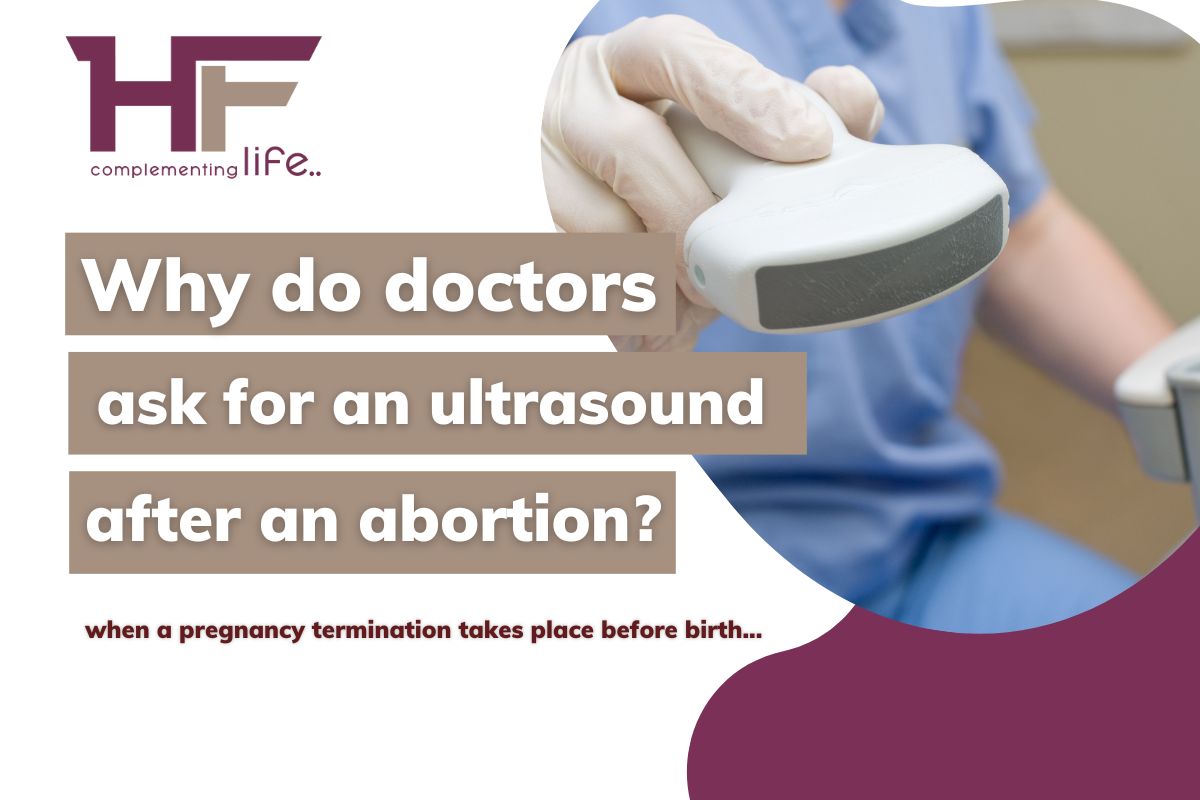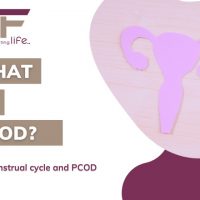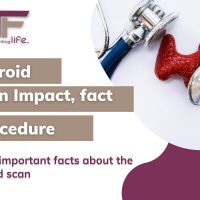“Why do doctors ask for an ultrasound after an abortion?” When a pregnancy termination takes place before birth, it is called an abortion. Sometimes, the doctor also refers to this as the termination of pregnancy.
It is something that we all know more or less, but do you know that the different stages of pregnancy provide different abortion options? That is right!
And,
To name a few examples, I shall like to mention – 1) Inducing labor and 2) dilatation and extraction.
Now, in order to understand the reasons for a doctor to ask for an abortion, you have to read the entire article given below.
However, before indulging in it, you must know that according to the World Health Organization (WHO), the ultrasound requirement is not needful after abortion services. Yet, it is used frequently in specific clinics.
As per records, 31% of embryos miscarriage after implantation was found in 1988 by Wilcox and his colleagues. On the other note, nearly 63% had no apparent health issues.
In fact, studies show that, at times, an infection in the uterus extends to the embryo or fetus, causing a septic abortion. Henceforth, if you have doubts about the success rate of abortion, you should talk to your doctor.
Besides, women interested in confirming the abortion success by ultrasound may do so 3-10 days after the surgery. Herein, a Transvaginal Sonography in case of uterine drainage in the first pregnancy trimester may lower the rate of incomplete abortion following curettage.
Persistent hemorrhage or fever following an abortion are common reasons to send a patient for ultrasound testing, which might reveal complications, including retained products from conception.
Perhaps, diagnostic limitations of ultrasound may sometimes make it inappropriate for use in post-abortion monitoring! That is why when deciding whether or not to intervene after a medical abortion, clinicians primarily look at clinical symptoms and later, the ultrasound results!
Now, for further detailed insight, simply sit back and watch out!
CContents
What are the circumstances under which an abortion is legal?
Well, before an abortion, you should certainly understand the law in your country.
That is when you will be happy to hear that in India, abortion is legal under certain conditions!
Here in India, some licensed medical professionals perform abortions in the first or second trimester, especially in the states where such procedures are authorized. The amendment, involving several changes to the MTP Act, was passed in 2021, and the changes reveal that all women are allowed to obtain safe abortion services on contraceptive failure. However, the gestational limit can extend for certain categories, particularly those belonging to the 24th week or requiring up to 20 weeks of gestation.
Hence, your doctor may ask for a post-abortion ultrasound, depending on the form of the abortion. To your knowledge, it is possible to induce an abortion using either medicinal or surgical means.
On the same note,
Medical science classifies abortion procedures according to the gestational age of the pregnant woman, and whether a woman can legally undergo an abortion in India varies from state to state.
Here, down the line, we have outlined the abortion procedures and the reasons for your doctor to recommend an ultrasound after the definite abortion procedure, respectively.
1. Medical abortion
This abortion utilizes mifepristone and misoprostol (Cytotec). After 24–48 hours of taking mifepristone, take misoprostol which may prescribe for oral or vaginal use. The latter shall empty the uterus by 2–24 hours after consuming the mifepristone. As a result of taking these medications, women may have cramping and heavy bleeding when the uterus empties!
Why may your doctor recommend an ultrasound after a Medical abortion?
While bleeding and cramps begin between one and four hours after taking the second tablet, however, if that does not happen, your doctor may recommend an ultrasound.
If and when you suspect an unsuccessful medical abortion, your doctor may want a post-abortion ultrasound to determine whether the abortion was successful.
2. Vacuum aspiration
Are you expecting an abortion in your first trimester? Then, the Vacuum aspiration process shall serve the best! The process involves the use of suction to stop a pregnancy. Your doctor shall primarily numb the region with medicine or injection. After opening the cervix using dilators, she or he will insert a tube into the uterus and empty it manually or mechanically.
Why may your doctor recommend an ultrasound after a Vacuum Aspiration?
When you opt for a vacuum aspiration in the late stages of the first trimester or early second trimester, there is a greater chance of an ineffective abortion. That’s when your doctor may recommend an ultrasound to confirm the effectiveness of your abortion.
3. Dilation and evacuation
The doctor shall give the patient a general anesthetic before performing a dilation and evacuation. Following that, she or he shall insert a speculum into the vagina. Herein, medical professionals generally use Cervix-opening dilators. Once the device intervenes in your body, your doctor shall remove the pregnant tissue by using the dilator. This process takes place until all remaining pregnancy tissues are pulled out!
Why may your doctor recommend an ultrasound after a Dilation and evacuation?
Alas! The techniques of dilation and evacuation (D&E) can sometimes lead to complications such as infections, heavy bleeding, a hole or rupture in the uterine wall, and even damage to your cervix. Besides, a faint possibility of bearing some remnants of the pregnancy may remain within the body even after abortion. Therefore, a post-abortion ultrasound stands necessary for your doctor to discover all potential complications.
4. Labor induction abortion
Labor induction abortion serves to end a second or third-trimester pregnancy. The doctors recommend this type of abortion, particularly, when the pregnant woman’s life is at risk. Inducing labor with drugs or oral medicines shall empty the uterus in 12 to 24 hours. Here, the doctor may also choose to inject them into the uterus or vagina. Moreover, during this abortion, your doctor may frequently prescribe pain medicine or a local anesthetic.
Why may your doctor recommend an ultrasound after a Labor induction abortion?
- You may get horrified hearing the fact that infections, excessive bleeding, stroke, and high blood pressure are all possible setbacks of inducing labor in the third trimester, thereby making ultrasound a crucial marker to check whether your reproductive organs and others are functioning on point.
- Also, in comparison to a typical delivery, there is a higher chance of the uterus rupturing during a cesarean section. This issue may not appear until the abortion is complete, and an ultrasound shall help your doctor see such a condition effectively.
Risk factors and Effects: On fertility, health, and future pregnancies after abortion!
After knowing about all the types of abortion, you need to learn the risk factors underlying them. But, you don’t really need to worry because after getting an abortion, your doctor shall ask you for an ultrasound.
Disclaimer! There is a possibility of complications with any medical procedure. Abortions performed later in the pregnancy are associated with a higher risk of complications. Why so? It is because both medical abortion and surgical abortion have various dangers depending on the gestational age and the number of weeks the woman is pregnant.
- Surprisingly, Seventy out of every thousand women will require a second surgery to remove remnants of a prior pregnancy.
- About one in a thousand women can have severe problems after childbirth. These might include excessive bleeding, uterine injury, or sepsis!
- Approximately, three out of every one hundred women may need further surgery to remove remnants of a prior pregnancy.
- Injuries to the uterus or cervix are rare but can occur, but they may cause severe complications for the woman.
- Furthermore, breast cancer as well as mental health problems are more likely to develop after an abortion.
Also, - If you do not wish to become pregnant, you should take contraception immediately since many women may get pregnant shortly. Medical professionals providing your abortion should also discuss birth control options with you.
- If a uterine infection is left untreated promptly, there is a very chance that it might affect the woman’s fertility or ability to conceive. Pelvic inflammatory disease (PID), resulting from the infection, may affect your reproductive organs and ovaries.
In most cases, however, treatment is sought and effective before this point. If you have questions or concerns regarding the safety of an abortion, it is essential to discuss them with your doctor or perhaps an abortion guidance service.
What to do after an abortion?
After a surgical abortion or a medicinal abortion in the hospital, you will often not require any follow-up visits or testing.
However, the medical abortions conducted at home need further testing to confirm that you are no more bearing a life inside you.
Please don’t be afraid if and when little symptoms like diarrhea and nausea appear in the picture. These are only temporary side effects that women may experience after a medical abortion.
Additionally, the general anesthetic or sedative medications used during a surgical abortion may cause certain complications. Abortion may cause discomfort in the abdomen or bleeding from the cervix. The average duration of this bleeding is a week to two! However, mild vaginal bleeding may sometimes persist for up to a month following a medical abortion.
- If you are feeling pain or discomfort, try taking over-the-counter pain relievers like ibuprofen or paracetamol.
- If you need to halt bleeding temporarily, use sanitary pads or towels instead of tampons.
- You may resume sexual activity as soon as you are ready, but you should start using contraception immediately if you do not want to get pregnant again. It is because most women are likely to get fertile right after an abortion.
- For severe complex health problems, you need to contact your doctor for an ultrasound.
After a medical abortion, is an ultrasound necessary?
When you have doubts regarding whether or not the abortion was effective, or if you want to be sure the pregnancy is over, an ultrasound may help!
Although, you may take a home urinary pregnancy test Around 3-4 weeks after missing your periods, hormonal changes in your body may hamper the results of your urine check at home if undertaken before the recommended waiting period of three weeks.
Next, It is not required to undergo an ultrasound following a medical abortion if there are no signs of complications. However, after taking the medication, you may choose to get an ultrasound to ensure the pregnancy is over as soon as feasible.
Only the detection of a continuing viable pregnancy would need further action by doctors doing ultrasounds as part of the follow-up care after a medical abortion!
How does ultrasound help your doctor determine whether a follow-up visit is necessary?
Even though there are diagnostic limitations to using ultrasound for post-abortion monitoring, doctors conduct it as a part of their clinical protocols, and such follow-ups ultrasound are mostly based on certain conditions, as given below.
Endometrial thickening –
The biological facts say that the thickness of the uterine lining varies, and sometimes it is linked to a complex or heterogeneous look after an effective medical abortion. That is exactly where doctors ask for follow-up ultrasonography!
Are you aware of the crossover between those who had a successful and unsuccessful abortion with medical intervention? Well, shreds of evidence from many prospective and retrospective cohort studies display before us that – amongst women who had a persisting gestational sac, the average endometrial width one week after the medical abortion was 10.9 mm. On the other hand, among women who required further intervention was 14.5 mm.
Some studies state that the average endometrial depth in women who need intervention is likely to be larger, but no research to date has discovered a thickness beyond what lay diagnosed in the case of a failed medical abortion.
Therefore, clinical symptoms and signs, such as persistent or severe bleeding, should guide the treatment choice rather than ultrasound results.
Persistent gestational sac –
Do you know that less than one percent of women have a medical abortion through the use of Mifepristone and Misoprostol? Yes, it is, and the treatment herein ends up culminating in a persistent gestational sac.
A pregnancy that is not viable stands indicated by the presence of a prolonged gestational sac, which may be handled by aspiration, the second dosage of misoprostol, or expectant management, following the woman’s decision.
This second dosage of misoprostol may result in the ejection of the gestational sac in 69% of women, and that too within 11 days since a medical abortion.
Halt!
There also exist other reasons for your doctor to determine the execution of ultrasound after the abortion, and they are as follows!
- Your doctor shall check whether or not the gestation sac stands expelled after the therapy. Such scrutiny takes place via ultrasonography!
- Clinical detection of RPOC via an ultrasound stands requisite in assessing the post-abortive symptoms an individual is experiencing. That is how your doctor may help limit the amount of needless surgical operations.
- Postpartum or post-abortion pelvic problems like uterus rupture, uterine vascular diseases, and ovarian vein thrombosis can be detected by an ultrasound. In this regard, many individuals with unusual vaginal bleeding undergo screening for retained fetal products. Well, Ultrasound helps identify these problems, but there is no agreement on the optimum sonographic findings.
- Surgical re-evaluation needs to be performed in patients with excessive bleeding and uterine cramping, especially once the abundant substance is present in the endometrial cavity, even after the treatment of retained product of conception within a week of surgical evacuation. Patients with moderate symptoms or shorter gestational weeks and sonographic data showing limited leftover gestational tissue are the preferred candidates for medical therapy. The one engaging uterotonics such as misoprostol to minimize the hazards of re-evacuation! That is where ultrasound stands necessary.
Is there an Advantage of post-abortion ultrasound?
Yes, there is!
The use of ultrasonography, particularly the transvaginal one, as a diagnostic tool for retained products of conception, including fetal components at an early stage, has the potential to save lives and increase the survival rate as a whole!
However, it is important to note that the variables of the operator and equipment need to be examined, alongside deciding on a standard criterion for it.
Survey records state that around one in five women who had their pregnancies terminated via medical means could not gain anything from having an early ultrasound examination. Why so? It is because a standard ultrasound test within 2 to 4 weeks after the first one cannot predict whether or not the therapy will be successful! This is why follow-up ultrasound examinations after a medical abortion need postponing until the menstrual cycle is complete unless there is an emergency for early treatment!
Conclusion:
By now, you must be knowing that the phase of your pregnancy shall determine the sort of birth control you can take as per the advice of a medical expert.
Access to abortion services is not just allowed in the United States but also in several other nations, namely, our own India. Based on data from over 50+ records, the average cost of medical abortion in India amounts to Rs. 700 to 1000 in the first trimester and Rs. 2000 to 3000 in the second trimester.
Pretty cheap, isn’t it?
However, an ultrasound after an abortion may sometimes fall heavy on your pocket. It is because the average cost of a post-abortion ultrasound is nearly Rs. 4500.
Relax! It is exactly where we, Health Finder, can help! At our online healthcare marketplace, we offer vast discount opportunities for you to get a post-abortion ultrasound test! For more references, go to www.healthfinder.in.










Comments